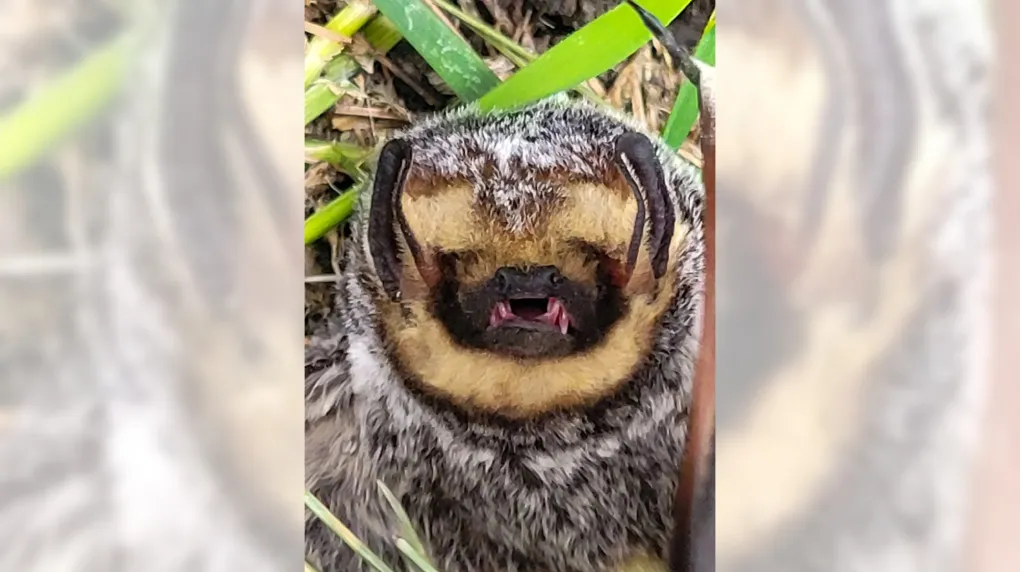Column: Bats are essential to our ecology, but don’t touch

A hoary bat is seen in Banning in 2023. (Courtesy of Rivers & Lands Conservancy)
I often write about special pet holidays or animal-themed months and seasons. In August we celebrated National Spoil Your Dog Day, Wild About Wildlife Month and World Lizard Day, to name a few.
If you missed International Bat Night on Aug. 24, National Bat Appreciation Day will be on the calendar April 17. We have many reasons to appreciate the bat, and not just because Halloween is around the corner.
First of all, bats are unique as the only mammals capable of sustained flight. If you thought a bat was a bird, think again.
Bats are essential to the functioning of our ecosystem. They are pollinators for many of our native plants, including cacti. A single bat can eat thousands of bugs a night, acting as natural pest control.
Our world would be a very different and less beautiful place without bats.
While vampire bats exist, we don’t have any in Southern California. Vampire bats are found in Central America and South America, and they are the only mammals that feed exclusively on the blood of other animals.
To learn more about our local bats, last year Pasadena Humane participated in a study with the Natural History Museum of Los Angeles.
Bat detectors were installed on the roof of our shelter and identified the canyon bat, the hoary bat, and the Mexican free-tailed bat flying around our campus. Interestingly, the Mexican free-tailed bat is the fastest mammal on earth, flying at speeds of up to 100 miles per hour.
Bats in our area are mainly insectivores, and healthy bats typically steer clear of humans. They use sound waves to detect and locate objects — a process called echolocation — so there is little risk of them accidentally bumping into you in the night.
It’s important to avoid contact with bats, particularly this time of year, because they may carry rabies. In fact, bats are the number one carriers of rabies in our area.
Every summer, especially July through September, a small number of rabid bats are found in Los Angeles County.
So far this year, 33 rabid bats have been reported to Los Angeles County Public Health. More than half —18 of them — were identified in August. A few of those bats were found in our animal care and control service area, specifically in Altadena, Glendale and Pasadena.
The risk of rabies transmission from bats to humans or pets is extremely small but potentially fatal. Please be sure to keep your pets up to date on their rabies vaccines, which protect against developing rabies after an exposure. Also, people who have a higher risk of rabies exposure — such as our wildlife staff — should be vaccinated.
Some bat behaviors that might be signs of rabies include not moving when approached by a human, inability to fly, being active during the day, or being in unusual places, such as inside a house or on the ground.
If you have any contact with a bat — including a bite, scratch, or sighting one in your home or on the ground — report it immediately to a physician, public health professional, animal control or all of the above.
This will help you determine your next steps and alert appropriate authorities to the possibility of a rabid bat in the area.
Do not touch a dying or deceased bat. Place a box or bucket over it and call us immediately for safe pickup at 626.792.7151 ext. 970.
Dia DuVernet is president and CEO of Pasadena Humane.
This blog post originally appeared as a column in the Pasadena Star-News on August 30, 2024.



